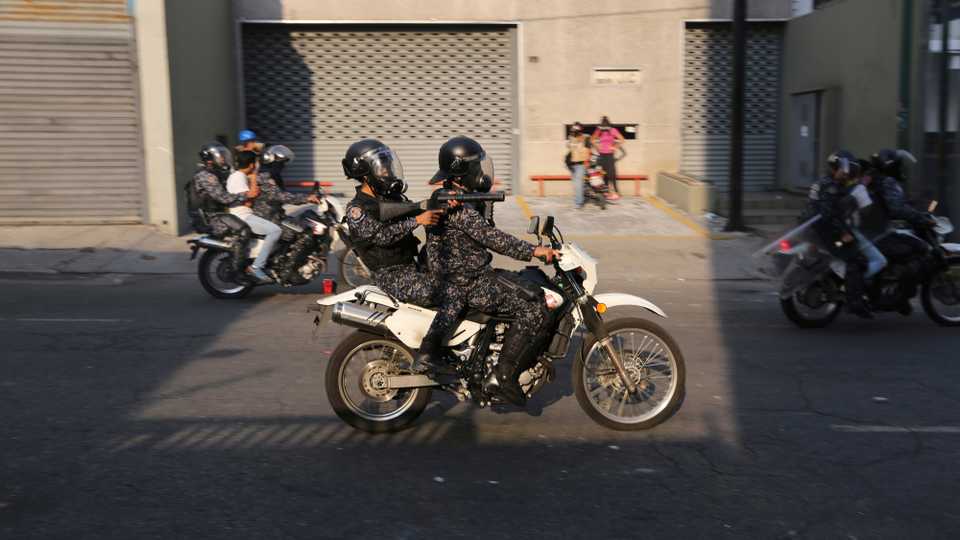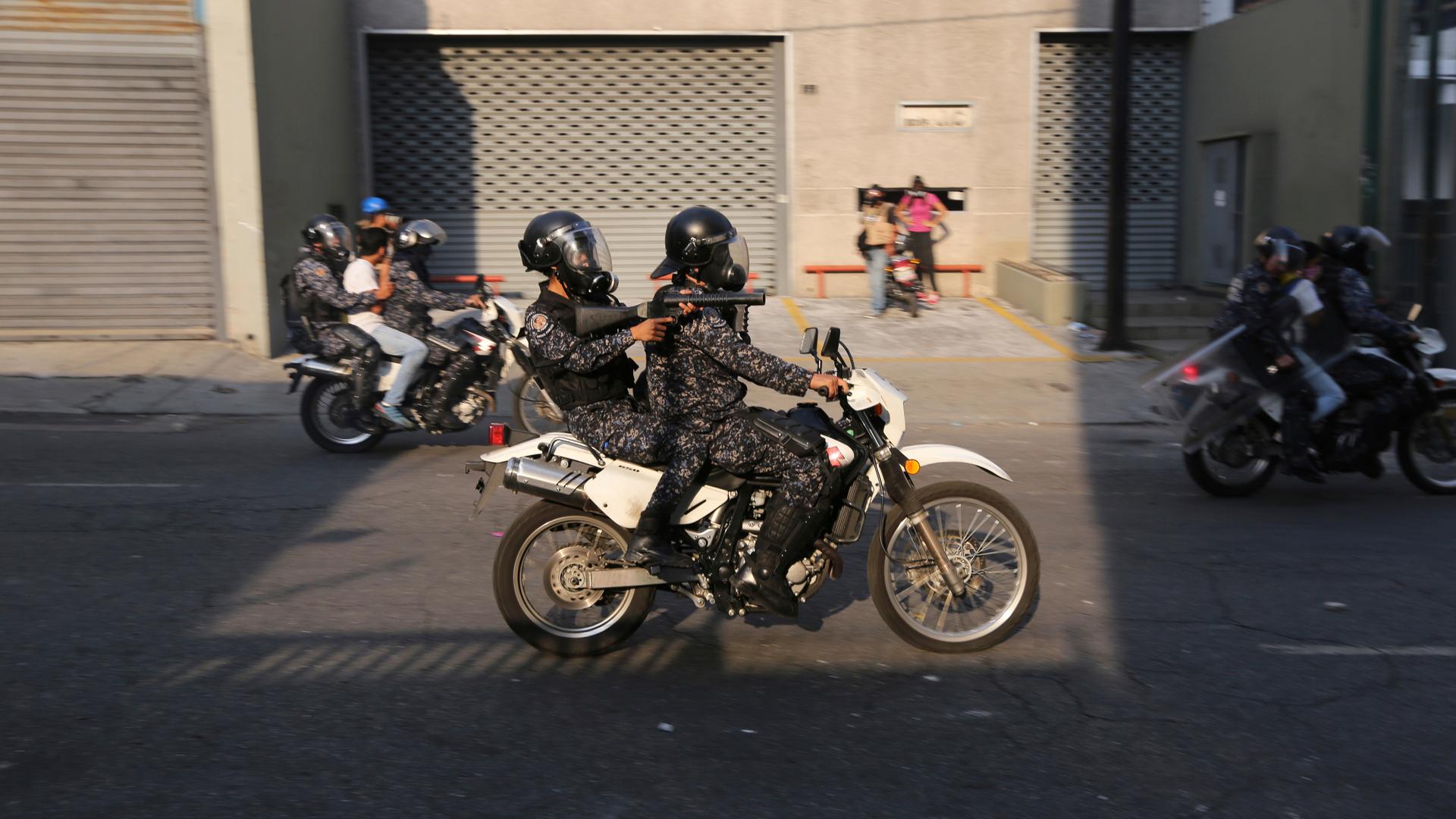
Venezuelan security forces and allied groups have committed systematic human rights violations including killings and torture amounting to crimes against humanity, according to a UN report.
Reasonable grounds existed to believe that President Nicolas Maduro and his interior and defence ministers ordered or contributed to the crimes documented in the report in order to silence opposition, UN investigators said.
Most unlawful executions by state agents have not been prosecuted in Venezuela, where the rule of law and democratic institutions have broken down, they added.
The UN fact-finding mission said other national jurisdictions and the International Criminal Court (ICC), which opened a preliminary examination into Venezuela in 2018, should consider prosecutions. It would share its database containing the names of officers identified by victims.
“The Mission found reasonable grounds to believe that Venezuelan authorities and security forces have since 2014 planned and executed serious human rights violations, some of which – including arbitrary killings and the systematic use of torture – amount to crimes against humanity,” Panel chair Marta Valinas said in a statement on Wednesday.
READ MORE: UN rights chief meets Maduro – Venezuela crisis
There was no immediate response by Maduro’s government to the report, based on more than 270 interviews with victims, witnesses, former officials and lawyers, and confidential documents.
“Far from being isolated acts, these crimes were coordinated and committed pursuant to State policies, with the knowledge or direct support of commanding officers and senior government officials,” Valinas said.
The panel found that officers in the military, police and intelligence had committed extrajudicial killings. They included the former head of the National Intelligence Service, General Christopher Figuera, it said.
Planting evidence
The panel said it had reasonable grounds to believe the intelligence service falsified or planted evidence on victims, and that its agents tortured detainees. They included opposition lawmaker Fernando Alban, whom the government said committed suicide in 2018 but whose party said was murdered.
Navy Captain Rafael Acosta was believed to have died of torture in the custody of the military intelligence agency DGCIM last year, the UN experts said.
The panel, set up by the Human Rights Council to investigate violations since 2014, was not granted access to Venezuela. More than 5 million people – one sixth of the population – have fled the country’s political, economic and humanitarian crisis.
READ MORE: UN warns of possible crimes against humanity in Venezuela
Jorge Valero, Venezuela’s ambassador to the United Nations in Geneva, told the forum on Tuesday the government was cooperating with the separate office of UN High Commissioner for Human Rights Michelle Bachelet, notably in facilitating prison visits.
Valero denounced the latest sanctions imposed by the Trump administration which were “causing suffering and death for the Venezuelan people.” The United States, along with dozens of other countries, recognises opposition politician Juan Guaido as Venezuela’s legitimate interim leader.
The report found that the Venezuelan state apparatus responded with repressive tactics to opposition protests that grew especially after Maduro was re-elected in 2018 amid an outcry over the results.
“Security forces used lethal force against the victim when it was not strictly unavoidable to protect lives. Security forces also used less-lethal weapons in a lethal manner, which resulted in the death of the demonstrators,” it said.
READ MORE: Crime rate sours in Venezuela










Discussion about this post